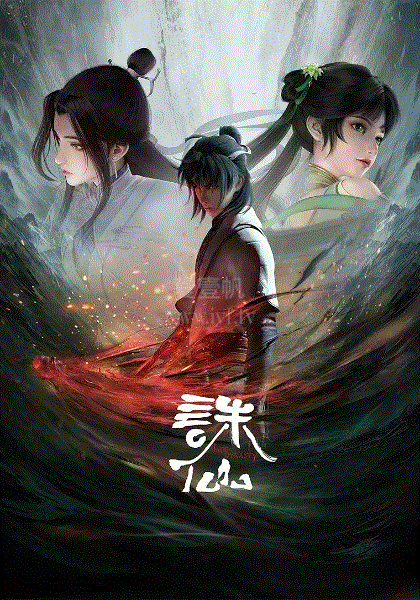Из Alchemists, Mediums, and Magicians: Stories of Taoist Mystics, перевод Thomas Cleary.
Это сборник жизнеописаний 144 исторических лиц, связанных с даосизмом. Был составлен под названием "Сюаньпин лу" 玄品錄 даосом Чжан Тяньюем 張天雨 (1279-1350).
Li Bo was styled Taibo. He was a man of Shandong. He had extraordinary talent in youth; he was broad-minded and free-spirited, detached, with a mind beyond the world.
His father was commandant of Rencheng, so he made his home there.
Bo was perceptive. When he was traveling in Bingzhou, he recognized Guo Ziyi, king of Fenyang, in the army and called him a man among men.
Yet his inclination was to admire the arts of the Way, and he considered it possible to attain spiritual immortality. He wouldn’t read books that were not by sages and was ashamed to compose licentious works, so his words often resembled the expressions of celestial immortals. He has been called the greatest poet in history since the classical era.
When he was young he lived in seclusion on Mount Zulai with Confucians from the state of Lu—Kong Chaofu, Han Jun, Pei Zheng, Zhang Shuming, and Tao Mian. Singing in their cups, they drank freely. Contemporaries called them the Six Eccentrics.
During the Tianbao era [742–755] he traveled to Huiji and went into seclusion in Yan with the Taoist priest Wu Yun. Then when Emperor Xuanzong summoned Yun to the capital city, Yun recommended Li Bo to the emperor, who sent an envoy to summon Bo to come in and meet and converse. The emperor had him fed on a couch of seven treasures and made him an imperial scholar in attendance along with Yun.
Bo was already addicted to wine, so when Xuanzong wanted to compose a new song and called for him, Bo was already lying drunk in a tavern. Called in, he washed his face, then was ordered to take up his brush. In a short while he produced three stanzas of lyrics on the subject of an era of peace. The emperor appreciated this.
Once when he was drunk in the audience hall, he tripped Gao Lishi(91) and caused his shoe to come off. Because of this he was denounced and ejected. After that he roamed the rivers and lakes, sunk in drink all day long.
At that time Attendant Censor Cui Zongzhi, banished to Jinling, sang and drank with Li Bo. Once they rode a boat from Caishi to Jinling; Bo was wearing a brocade court robe in the boat, gazing about and whistling in amusement, oblivious of everyone else around him.
The first time He Zhizhang met Li Bo, he said in appreciation of him, “This is a banished immortal from heaven above.”
Sima Ziwei also said Bo had the manner of immortals and the bones of the Way and could travel with spirits beyond the bounds of the universe.
Later, on a request made through his great-uncle Yan Yun, chief inspector of Chenliu, to Celestial Teacher Gao of Beihai, Li Bo was given a Taoist chart at the Sanctuary of the Purple Absolute in Qizhou. Making a blue patterned hat and waistcoat, he headed east to return to Penglai, after all an immortal ascending to the Cinnabar Hall.(92) He was popularly made out to be the spirit of the evening star. One of his epithets was Realized Man of Higher Purity Mirroring Liberty.
91. Gao Lishi was a powerful court eunuch.
92. That is to say, an exiled immortal finally returning to the realm of immortals.



Комментариев нет:
Отправить комментарий